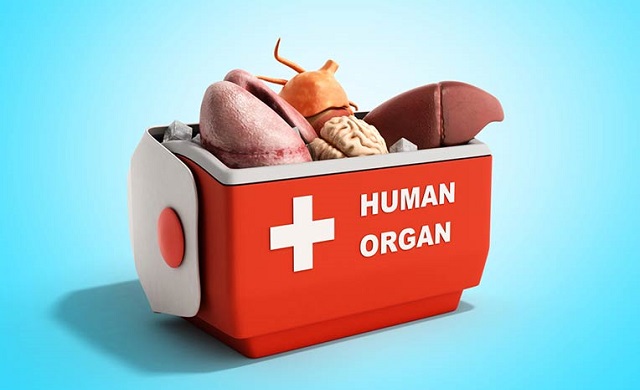
Kampala, Uganda | THE INDEPENDENT | Donating an organ to a patient who needs it is a gift, an organ shall not be sold and an organ shall not be removed from a living person without their consent. That is the summary of the law that was passed by the Parliament of Uganda and assented to by President Museveni recently.
The law designated Mulago National Referral Hospital as the pioneering transplant center and prescribed criteria to be followed when designating a hospital as an organ, tissue, or cell donation and transplant center.
Rubaga Hospital last year applied to the Ministry of Health seeking accreditation to be designated an organ, tissue, or cell donation and transplant center.
The Ministry of Health has however not constituted the Uganda Human Donation and Transplant Council.
While Rubaga Hospital has indicated that it has all the required structure and human capacity to carry out organ transplants, the law provides that “A hospital shall not commence any activity relating to the removal, storage, and transportation of any human organ, tissue or cell for transplantation after commencement of this Act, unless the hospital is designated as a transplant center under this act”
Article six of the law provides for the establishment of Uganda Human Donation and Transplant Council. The council is required to oversee and regulate organ, tissue, or cell donation and transplantation in Uganda. The council is responsible for the regulation, organization, and supervision of all national human organ and tissue and cell donation, and transplant activities.
Dr. Frank Asiimwe, a Consultant Urologist and Transplant Surgeon, at Mulago National Referral & Teaching Hospital, explained that while the Minister is charged with the designation of an organ transplant, she/he has to be guided by a team of professionals.
Generally, Asiimwe said the law sets parameters to ensure the safety of the donor and the recipient of human organs, tissues, and cells. “It is not about this popular talk about ritual practices. You realize times people talk about ritual practices or organ extraction and they call them transplants,” It is not the case.” he said.
Asiimwe explains that the law goes to the extent of defining what an organ transplant should be, who is a donor, who is a recipient, who can do a transplant, where can it be done, under what circumstance, and who must not donate.
“So the law set parameters within which this very big life-saving bit of science marvel can be done,” he said. The law for example provides that a person below 18 years not donate an organ, tissue, or cell.
It provides about 17 organs that should be transplanted. These include; the kidneys, the liver, the lungs, the penile, the uterus, bones, bone marrow, hair, and cornea among others. It further provides for any other organ, tissue, or cell for the purpose of transplant and donation.
Dr. Robert Kalyesubula, one of the leading kidney specialists in Ugandaexplained that for one to donate an organ / she or he has to undergo over fifty tests by independent experts.
“And you have to pass these tests. These tests are not for the recipient. They are actually for the protection of the donor. Because once a person gives away their organ, they cannot take it back anymore,” he said.
According to Kalyesubula, most of the procedures and tight measures prescribed in the law are aimed at protecting the organ donor.
“When we are doing organ transplants, this is the only time doctors take a person who is not sick, they have no problem and we put a knife on them, we operate them,” he said
“So as doctors, we take an oath to protect life, and so we never harm anyone. So all these Bills do is to protect the individual either from intentional harm and also any possibility of being manipulated,”
“Organs Are Donated Out of Love”
Amidst talk and fears that Uganda is likely to witness a surge in human organ trafficking and harvesting, Dr. Asiimwe said the law prohibits any form of commercialization of organ donation. He said one cannot for example come out to advertise that he /she has an organ for sale.
“Organs must be donated out of love, out of affection, purely for the care of the person who is receiving. Not for commercial gain,” Asiimwe emphasizes.
Uganda is among the countries in Africa that have come up with laws providing hefty penalties, fines, and jail sentences as part of the efforts to curb illicit trade and harvesting of organs, tissues, and cells.
Practitioners found to have participated in illegal practice related to organ harvests are liable to a fine of about two billion shillings, and risk having their practicing certificate withdrawn. According to Dr. Asiimwe, recipients of illicitly harvested organs are liable to heavy fines and jail sentences.
Guiding Principle 5 of WHO Guiding Principles on Human Cells, Tissue and Organ Transplantation states that, ‘The human body and its parts cannot be the subject of commercial transactions.” Informed Consent Also key among the provisions of the law is the requirement for informed consent.
Informed Consent in any intervention in the health field can only be carried out after the person concerned has given free and informed consent to the procedure. Clause 67 (a) (b) and (c) of the law includes the responsibility of the Council to inform the donor of the long-term benefits and risks related to the procedure.
This according to the law will enable donors to make informed decisions about the donation. Under the WHO guiding principles on human cell, tissue and organ transplantation, there needs to be an adequate balance of interests of recipients and donors.
Benefits to both parties should outweigh the risks associated with the donation plantation No opt-out policy on organ donation.
Unlike countries like France where their laws have recently been amended to reverse policies on organ donations so that all people could become donors on their death. The law in Uganda does not presume. One has to swear an affidavit to show that he/she is willingly donating the organ, tissues, or cell.
The whole idea of having organ transplants performed in Ugandan hospitals is to end what is known as medical tourism and to lower the cost of travel abroad to have transplants for bone marrow in case of sickle cell disease, lung transplants from severe cases of TB and other disease, liver transplants among others.
In 2021, the Uganda Medical Board under the Ministry of Health estimated that these medical procedures roughly cost about $25,00O inclusive of travel and hotel fees abroad.
Other aspects of the law
To establish standards for storage of harvested organs, tissues and cells; to create a database of information of donors and recipients to be retained by the transplant centers, hospitals, and health facilities and establish procedures for the transplantation of organs and tissue from living donors including due diligence.
The law further prescribes how consent is to be given by donors and prescribes offenses and penalties related to issues of organ and tissue donation and transplantation.
****
URN
 The Independent Uganda: You get the Truth we Pay the Price
The Independent Uganda: You get the Truth we Pay the Price



